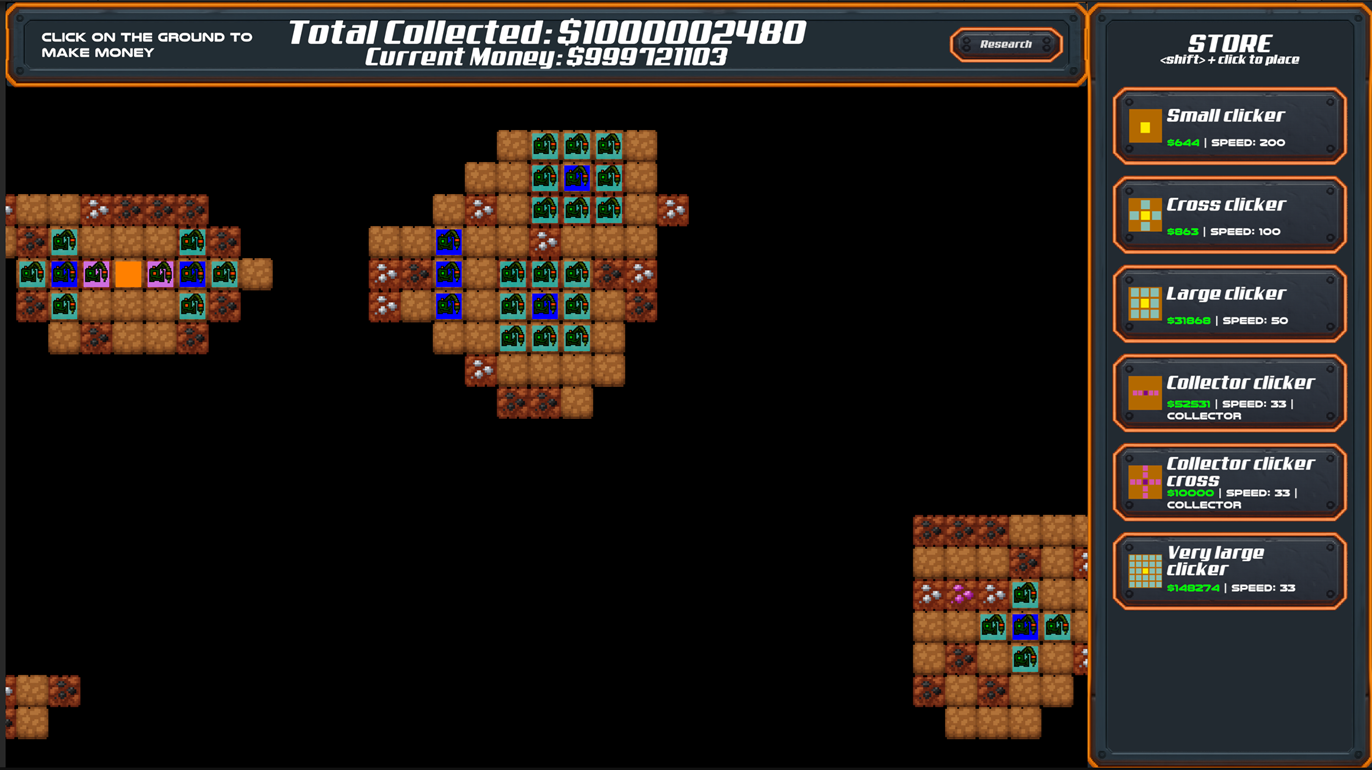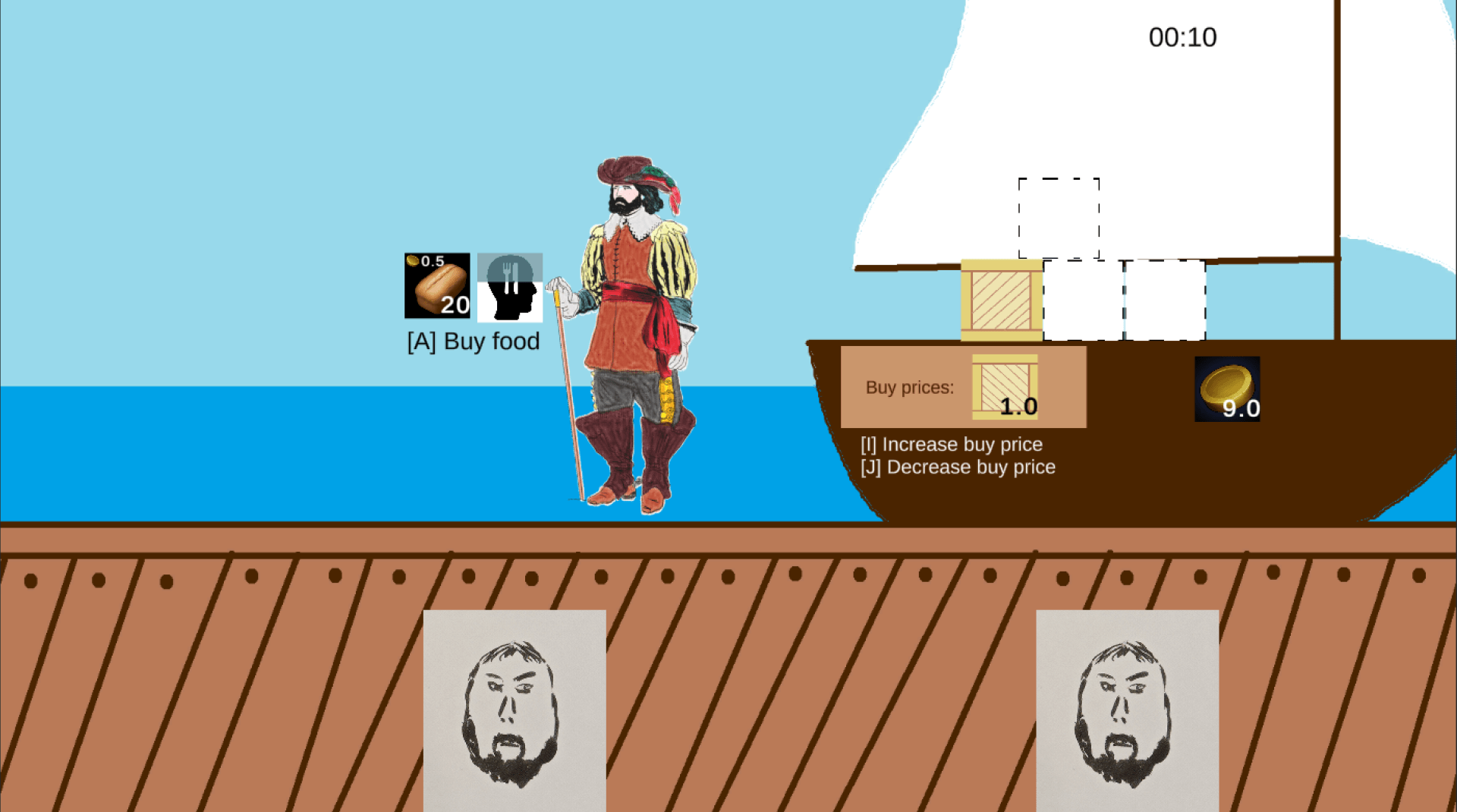My problem with RimWorld and the game I’m trying to make
This week I installed and played RimWorld again. I decided to give it another shot after I was disappointed in the past. I enjoyed it for an hour and a half or so, and then I felt I don’t want to play anymore. This was the same experience I had two times in the past. In this post, I try to explain why I feel a problem with RimWorld, and how it related to the game I’m trying to create for a while now, with little success.
RimWorld problem #1: too much content
RimWorld has endless content: colonists’ traits, colonists’ needs, room characteristics, weapon types, resource types, outdoor elements, animals, terrains, construction elements, events, and enemies. But the mechanisms of the games are numerous. The first is the cycle of the need: colonists have needs, and if needs are not met they may die or have a mental breakdown, the player can prioritize which actions they will do, some actions will satisfy the needs to some level, satisfying needs also requires resources, with time, new needs arise, and so on. This mechanism can run with two needs or two hundred needs. For me, it feels the same. Other mechanisms are research which allows more actions to be done by the colonists, trading with foreigners, fighting foreigners, and special events (aka the narrator).
This creates a vast amount of content, but for me, it’s not interesting. After about an hour, when I finally can cut my crops and have the colonists eat fresh food, it starts to feel daunting. I know that after twenty minutes they will start to be unhappy because they only eat vegetables, and want meat, and then cooked meat, and then drugs. And after I made them rooms with beds, they say the room is ugly, or cold, or whatever.
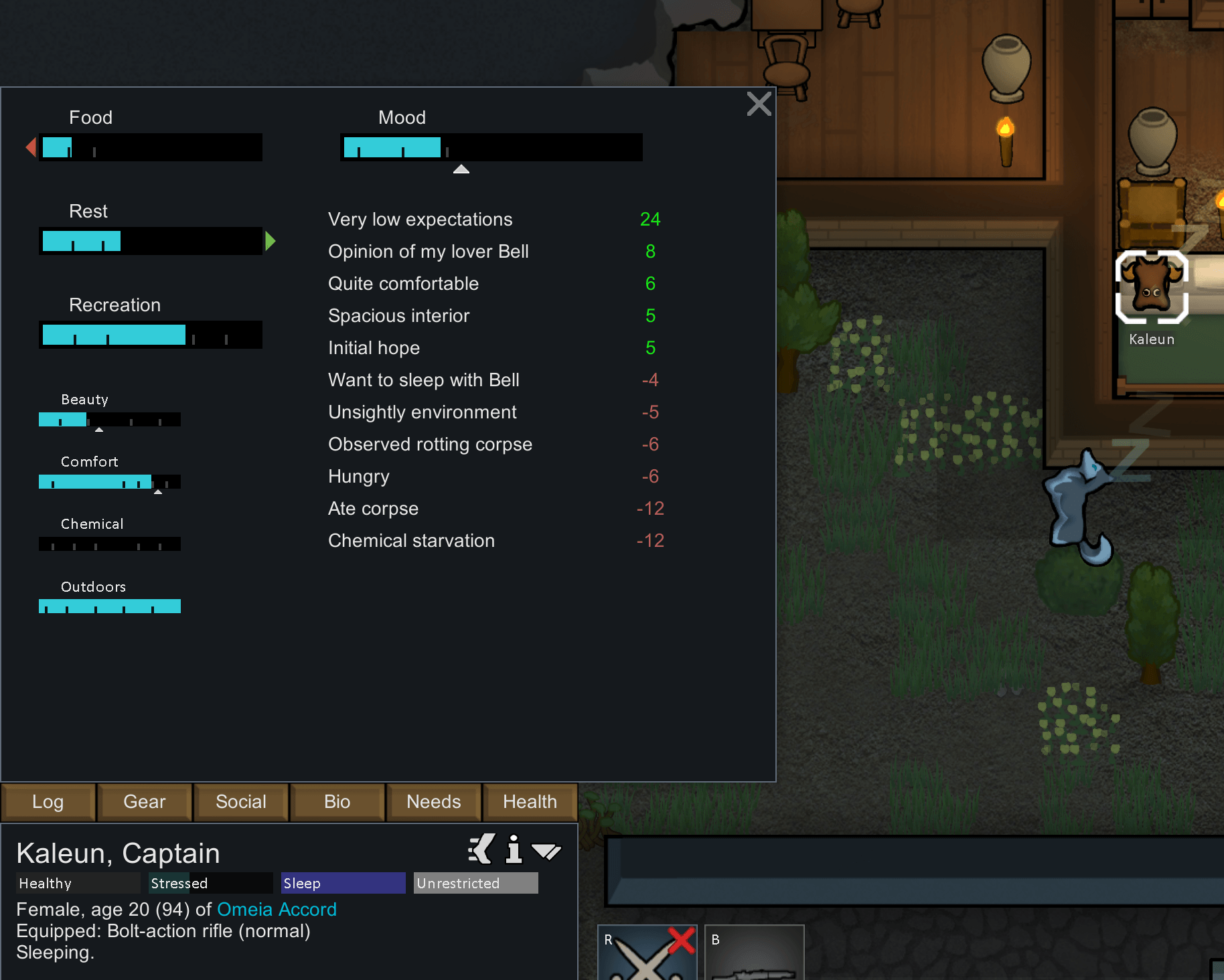
When I was in my PhD studies I was developing geo-simulations for academic studies. I have a lot in common with developing games like RimWorld which are basically simulations. One day, my advisor, Itzhak Benenson, responded to my suggestion of randomizing the fire risk parameters of different buildings. My idea was to create a more “realistic” simulation by adding noise. Benenson told me: that adding randomization to the model usually does not change the model behavior, only adds variance.
I think it’s the same for me in the case of such games like RimWorld. Having many types of things that revolve around the same behavior does not interest me a lot once I figured out the core mechanism. It does not mean it’s inherently bad, just boring for me.
RimWorld problem #2: controls and situational awareness are difficult and consume the player’s energy
During most RimWorld gameplay, the player does not have direct control over the colonists. Most control is done by specifying which works each colonist would do. In advanced mode, the player can also set priorities. This is a very interesting control mechanism, but it has a big side effect: it is hard to understand what exactly made each colonist do what they do right now. Add to this the fact that UI is heavily text-based, the player needs to read a lot to get information. And on top, the vast amount of content.

This side effect which is enhanced by these two game choices results in the player investing really a lot of energy just in understanding how to make the colonists do something, or why they are not doing it. You can say that this is part of the game and what makes it unique. That’s of course totally legit, it just does not work for me.
I must say that games with some level of unclarity really interest me. But I think RimWorld takes unclarity to a place I don’t like. As I see it the unclarity in RimWorld is tactical. It is about having situational awareness, and about having exact controls. I prefer unclarity on the strategic level, unclarity about what other players and NPCs are doing or about to do, and about the results of my actions when they entangle other players’ and NPCs’ actions.
RimWorld problem #3: information is too explicit
This one might sound contradictory to the previous problem, but it isn’t. The previous problem is that information is hard to find. This one is that information is too explicit. Colonists’ needs are expressed in a way that does not require the player to think what is the solution, like ‘eat without a table’. So you need to build a table.
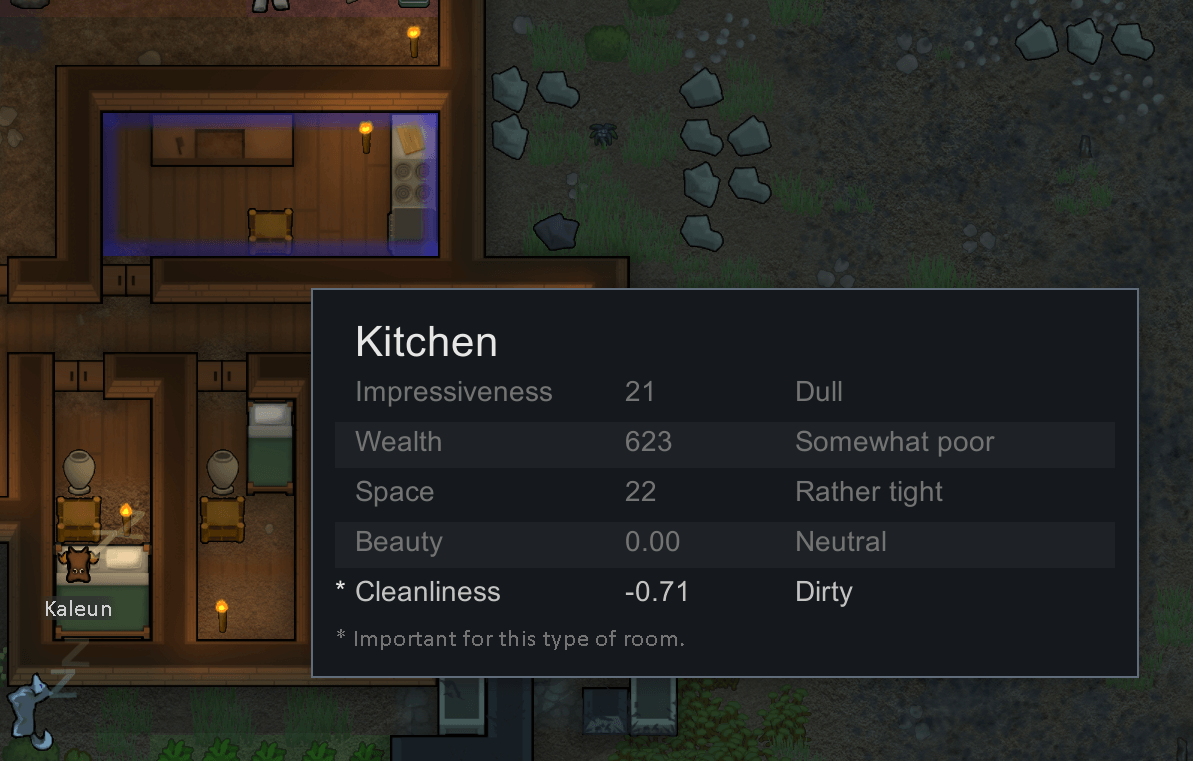
The side effect is that the player gets a view of what they need to achieve to solve problems for quite a long time into the future. The main challenge is not coming up with a solution to a problem, but managing the way to get to the solution. And this management is hard mostly because (A) the controls are hard, and (B) there are always more problems than resources to solve them.
For me, each time I played, felt like “strategy-grinding” after about an hour. I know many people like this, but I don’t. I want more focus on the challenge of understanding what are the solutions to the problems the game presents.
What I do like? the “Tycoon” effect
One thing a really like about RimWorld is what I call the “Tycoon Effect”, following the many “Tycoon” games. By Tycoon Effect, I mean a gameplay experience in which the player creates their own system, this system has a unique history originating from the gameplay (many times it includes naming parts of the system, and this history is reflecting the way and paths the player took to overcoming challenges.
When I was playing Railroad Tycoon I (the best game ever in my opinion), there was a feature that allowed you to replay the development of each railroad network throughout the game up to the current point. I could do this again and again. Watching the history of my gameplay replayed reminded me of all the experiences I had, all the challenges, and how I overcome them. The solutions I came up with, good or worse, were reflected in the network development.
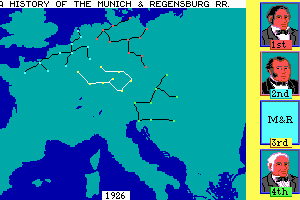
How does all of this relate to the games I’m trying to create?
For over a year I’m trying to create a game that will reflect in a way that I find interesting strategic decision-making. I started a few games which I decided not to finish for different reasons: The Gang and Co. Trading Company, You can build a trade route, Taxi, Medieval Trader, Maritime Trader.
I want strategic decision-making to emerge from the uncertainty of the other actors’ actions. The themes that interest me are economic ones, as opposed to war, action, etc. It’s not that I don’t like action games, I have a lot of hours of Dall of Duty multiplayer. Even then, I like the interaction between players and not the single-player interaction with the campaign mode.
In many of my game trials, I’m interested in feedback loop aspects of trade and economic activity. This goes back to a visit to New York City Museum when I saw an exhibition on forming the Atlantic trade route between New York and London. It explained how trade sky-rocketed grew when traders started to announce regular travels across the Atlantic instead of the ship owner looking for goods to buy and sailing only when they have enough. This, combined with the too-simple action in many Euro games of ‘building a trade route’ was the motivation behind many of my game ideas.
Last, I’m more interested in games where the mechanism creates the essence of the gameplay, versus vast amounts of content or lore. It goes back to my PhD study days, and to my general interest in systems.
I feel RimWorld goes the other way, making controls difficult and information gathering strenuous. Making the tactic difficult instead of strategy.
I’m not sure what I’m going to do next. I feel that the better game demos I created had less content, which created a tightened game loop faster. Faster for me as a creator, and faster for the player. The Taxi game is probably the best so far. Maybe I should first create abstract mechanisms, and only then add some lore, even non-realistic. I think I already have an idea.
Share if you think it's good
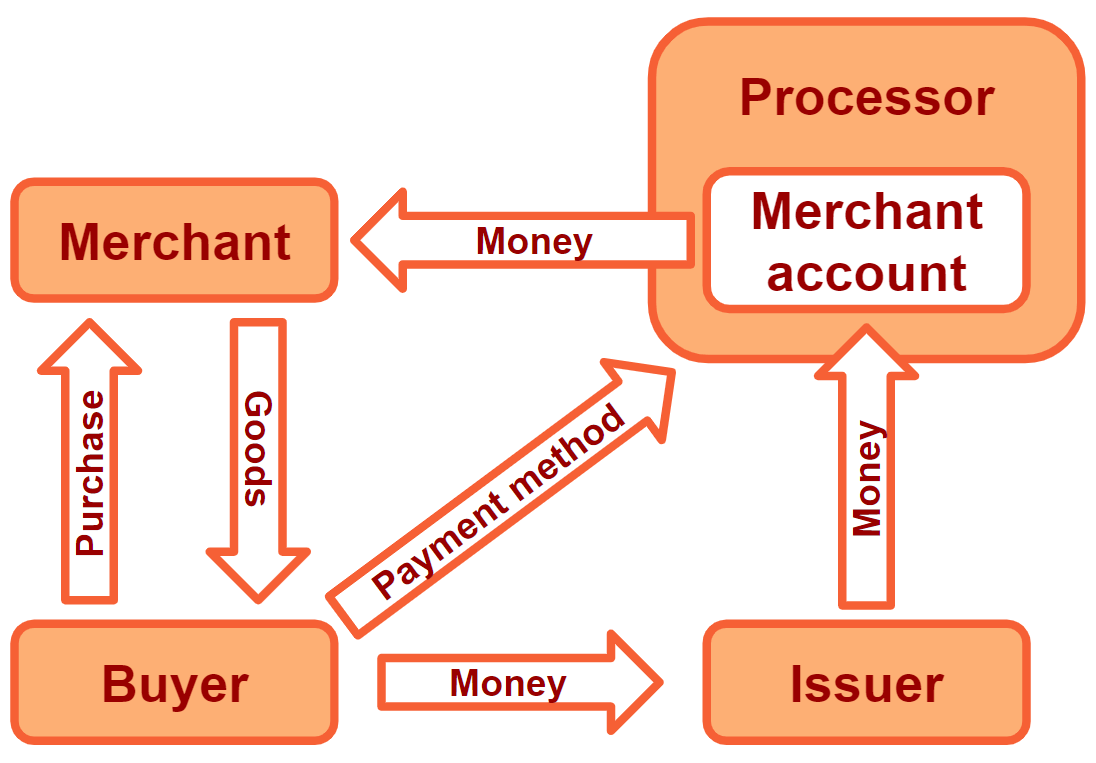
Don't miss a thing
We promise to only send you the good stuff. No spam.
